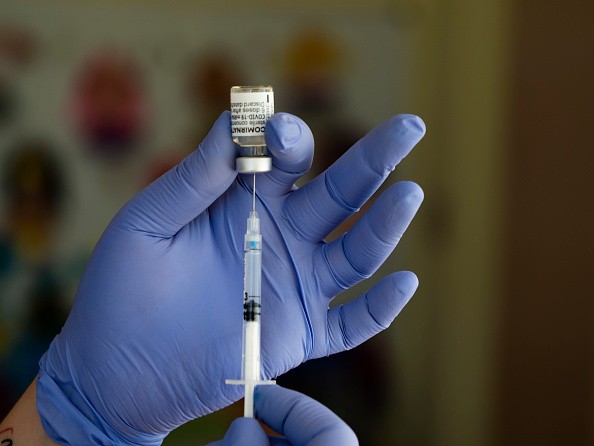Pfizer and BioNTech said on Monday that they submitted preliminary evidence to the U.S. Food and Drug Administration to justify the use of a COVID-19 vaccination booster dosage.

Importance of Booster Shot
In a recently published article in CNN News, when compared to antibodies developed among individuals who received two doses of COVID-19 vaccine, the booster dosage evoked a substantially stronger antibody response against the original coronavirus strain as well as the Delta and Beta variants.
Given the strong levels of immunological responses seen, Pfizer-BioNTech believes that a booster dose given 6 to 12 months following the initial immunization schedule may help maintain a high degree of COVID-19 protection most especially to the immunocompromised and organ transplant recipients.
Pfizer CEO Albert Bourla said in a statement, "The data we've seen to date suggests a third dose of our vaccine elicits antibody levels that significantly exceed those seen after the two-dose primary schedule. We are pleased to submit these data to the FDA as we continue working together to address the evolving challenges of this pandemic," according to a published article in CNBC News.
Companies Will Submit to the Different Regulatory Across the Globe
Late-stage study findings assessing the third dosage are anticipated soon, according to the firms, and will be submitted to the FDA and other regulatory agencies across the globe. The drug makers' statement comes after federal health authorities authorized giving COVID-19 booster doses of Pfizer and Moderna vaccines to Americans with compromised immune systems, including cancer and HIV patients, as well as individuals who have undergone organ transplants.
In a recently published article in MSN News, according to recent data from the United States, immune-compromised people do not generate a sufficient immunological response after two doses of the COVID vaccination. The most recent research from Pfizer examines the booster's safety and immunological response in individuals who have otherwise healthy immune systems.
However, booster doses are not being recommended for the general public at this time; but White House top medical adviser Dr. Anthony Fauci has stated that everyone would "likely" require one at some point due to the mutation of the virus.
Pharmaceutical Companies Contend That There Is a Need for a Booster Shot
Pfizer and Moderna, among the COVID-19 vaccine manufacturers, have consistently claimed that, like the seasonal flu, everyone would ultimately need a booster injection and, perhaps, more doses every year.
Pfizer highlighted statistics from Israel, which said last month that the two-dose vaccination was only 39 percent effective in preventing the illness, blaming the decrease in effectiveness on the more infectious delta variant. Pfizer claimed that its injections were 95 percent effective in preventing COVID infections when it filed its initial application to the FDA in December.
Last Monday, the Food and Drug Administration and the Centers for Disease Control and Prevention approved and recommended a third dosage of vaccination for certain immunocompromised individuals who had little to no reaction to the first two doses. Nonetheless, health authorities have concentrated their efforts on encouraging unvaccinated individuals to get inoculated. According to CDC statistics, 50.7 percent of the US population was completely vaccinated as of Monday, including 59.3 percent of those who were eligible.
© 2026 HNGN, All rights reserved. Do not reproduce without permission.








